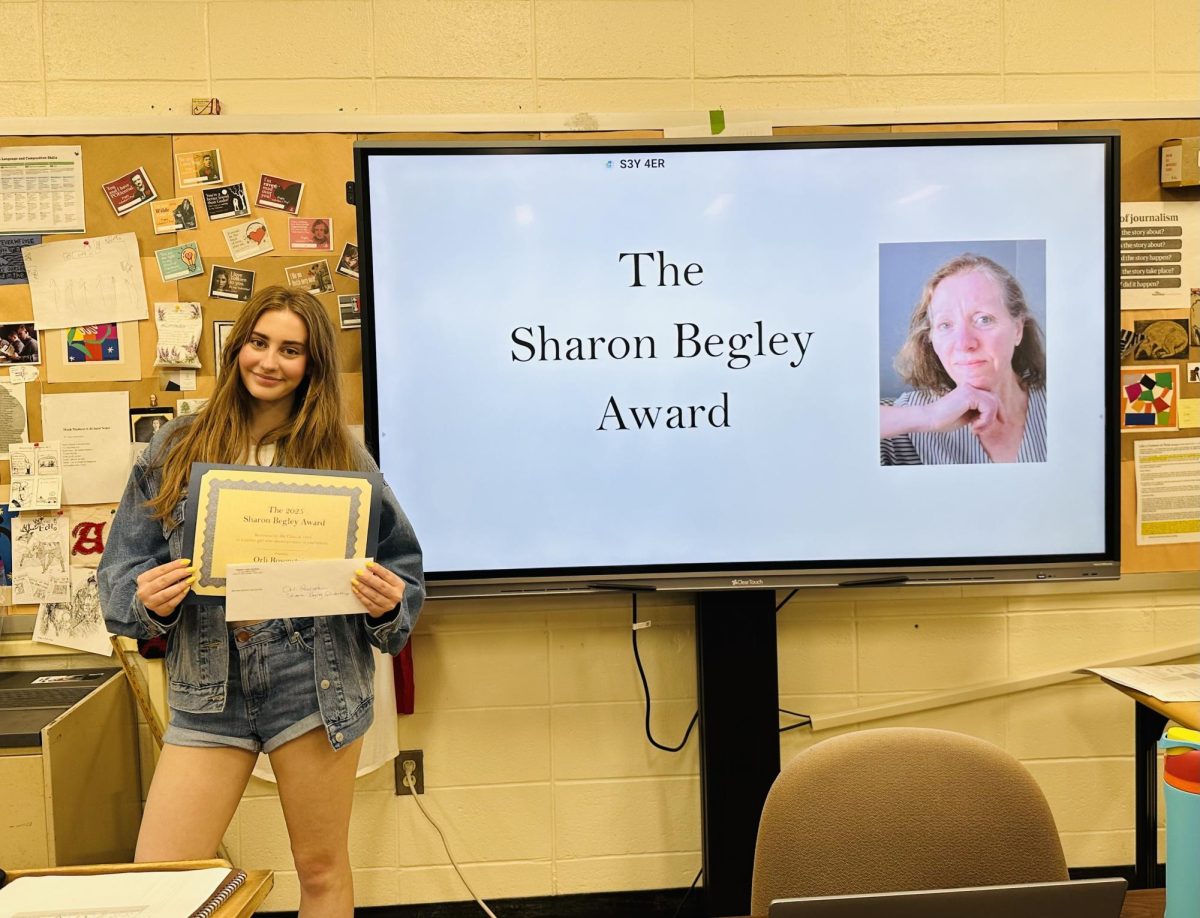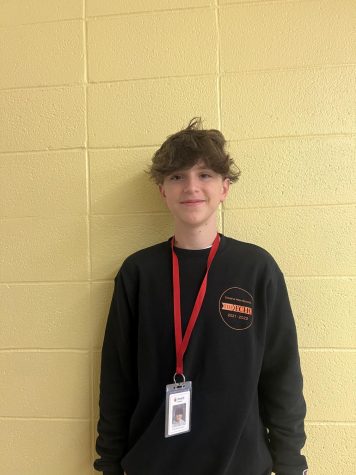Tenafly High School is known for its academic excellence, boasting high standardized test scores, a plethora of knowledgeable teachers, and many students who strive to take advantage of every resource available. One of the most sought after resources Tenafly offers is the wide variety of classes offered, ranging from STEM at the highest AP level to interesting electives you might not find somewhere else. Throughout all the classes Tenafly allows its students to take, there are two that stand out because of their known difficulty, iconic teachers, and value taken away after completing the course: AP US History and AP Calculus BC. As a Junior who is currently taking both courses and nearing the AP exam season, I thought it seemed fitting to give younger students an idea of what to expect in each of the courses, and even provide valuable insight that will help guide the final decision of whether or not to take them.
AP US History, or more commonly known as APUSH, is a full year history course that is followed by a College Board administered AP exam at the end of the curriculum. It covers a massive range of topics that touch into all aspects of American history, including economics, social life, and politics. For an idea of the amount of concepts APUSH covers, take into consideration the courses US History One and US History Two. These courses cover American history in the last two years of high school for all non-APUSH students. APUSH combines all the contents from US History One and Two into one school year, making it extremely fast paced and heavily reliant on textbook reading. Students should never expect for a chapter to be fully reviewed before a test, and therefore thoroughly reading the textbook and using other resources to study will be critical for success.
Given that there are so many chapters in APUSH and not that much time before the AP exam in May, tests need to be administered quickly to make sure that students have enough time to learn everything that they need to. This year, our class has had a test every Friday of the year, barring a few exceptions like the Olympics. Tests for APUSH come in four different formats: Multiple Choice, Short Answer Questions, Long Essay Question, and Document Based Question. These are the four types of questions that will appear on the AP exam and each of them is thoroughly explained and practiced to ensure mastery. There will also be a class calendar that maps out the reading and testing in a very detailed way, which helps students pace their reading and anticipate the type of testing that will occur next.
A typical APUSH class will often feature a lecture in which key details from the weekly chapter are explained. Some students choose to take notes whereas others choose to simply watch and try to digest the heavier concepts while leaving more basic information for at-home reading. Occasionally, there will be an extra-credit review game before a test including student favorites like Hot Seat, Bag of Justice, and Pictionary. While there is not enough time to review everything, all the time spent in class is efficiently used towards broadening your understanding of the material.
At home, expect a chapter of reading every week, which is normally about two hours of reading varying on chapter length. If you decide to take notes, time spent reading will increase significantly. Besides reading there is no other homework excluding studying for the next test and the occasional extra credit opportunity. Studying for a test normally includes re-reading the chapter, watching review videos like the ones done by Adam Norris, and using the textbook website to take quizzes to test your knowledge. The studying process will also vary depending on what kind of test it is.
Mr. Hegarty, the only APUSH teacher, is extremely experienced and his students consistently deliver a high average of AP scores. He knows the textbook like the back of his hand, and can answer questions down to the smallest of details. He is also experienced with training the students in the right way so that they can perform well on the AP exam, focusing on exposing each student to the various things they might see on the exam. Hegarty often infuses his fun personality into each class, which makes lectures more enjoyable and light-hearted.
Overall, this is definitely a course I recommend if you enjoy history and are up to the challenge of the large readings and constant testing. I find myself holding more knowledge about US history than ever before, especially about topics I didn’t know about but now find very interesting.
On the other side of the school spectrum is Calculus BC (Calc), known to be one of the hardest courses in the school. Calculus AB is also offered at Tenafly, which leaves the students taking Calculus BC as a smaller group who have a passion for math and are willing to take it at the highest level. Calc will cover an extensive amount of topics ranging from basic Limits, Derivatives, and Integrals, all the way to high-level topics like Partial Fractions, Parametrics, and Polars. Calc BC, as the name suggests, covers Calc B and Calc C. On the other hand, Calc AB only covers Calc A and Calc B. In reality, Calc BC will also touch upon Calc A in the beginning of the year, but only for a small amount of time because of the rush before the AP exam in May and because many students already know parts of Calc A from PITCH.
Because there are many topics to cover, especially due to the fact that Calc C also needs to be reviewed, the class has a very fast learning pace for math. While there won’t be weekly tests like APUSH, the hardest part is learning concepts very quickly. Tests will also be quite difficult (in my experience), and will range in point value depending on how big the unit is. An average class day will consist of a lecture covering one of the topics of the unit. There is also typically a review day before a big test where the class will do AP style questions together to enhance their understanding and get a sneak peak of the style of questions to expect.
At home, expect a reasonable amount of homework that will never keep you burning the midnight oil. All homework is textbook problems and practice packets, and are never mandatory, but extremely helpful for understanding concepts. Before a test, studying will typically consist of doing more textbook problems and watching youtube videos from a variety of creators that illustrate how to solve confusing questions.
Mr. Laux, the Calculus BC teacher, has irreplaceable experience in the field of teaching Calc BC. He has an endless understanding of different mathematical concepts and knows the curriculum down to the last details. His teaching style makes learning different concepts fun as the class collaborates to solve problems together. Not to mention, Laux has a great sense of humor that makes every class exciting and more engaging, turning a frustrating lesson about related rates into a lively discussion about Bergenfield and Yonkers (if you know you know). Furthermore, BC challengers can look forward to an end of year project where students make parodies about their struggles in the class, and can receive points for their efforts. Check out a parody from last year done by Andrew Lee, Derek Cho, and Tyler Jeong.
Personally, I strongly believe that Calculus BC is one of the most rewarding classes in high school and 100 percent worth it for any students who are up for the challenge. There aren’t many more feelings as gratifying in the academic world as understanding a difficult calculus concept for the first time.
Overall, APUSH and AP Calculus BC are two of the most challenging classes available at Tenafly, but also two of the classes that offer students an amazing opportunity to learn fascinating topics and study under experienced instructors. From my personal experience, I could definitively establish that any of the frustrations gained from taking these two courses are worth the reward at the end of the road. If you do choose to take them, good luck, and make the most of all the time you have in the classroom!















































































































































